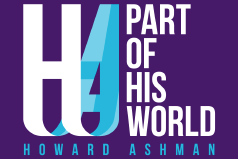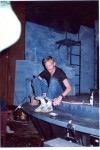Building a Little Shop
I don’t remember when exactly Howard told us that he wanted to make Roger Corman’s A Little Shop of Horrors into a musical. What I do remember is my reaction…
Fear.Followed by concern.
Howard was still reeling from the closing of God Bless You, Mr. Rosewater. His career had thus far been a parade that started with high-stepping cheerleaders and ended with a tired producer telling him that the show wasn’t going to run or move or make anybody any money.
Howard did have an increasing corps of high-powered supporters -- people who were interested in him, saw that he had talent that might add up to something. But that was about it. The world is littered with such people – the talented and their spotters.
I mean, it’s really easy to be all smart now, about what a perfect vehicle Corman’s movie is for a musical. And puppets, of course, you use puppets to be the plant. But at the time, the whole idea seemed a little wacky and a little off and pretty much like something that could make you look very foolish if it didn’t work.
What sold me wasn’t Corman’s film at all. It was the way Howard walked me through that film. Or not that film but the musical he thought he could make from that film. Essentially, the movie was a springboard for Howard’s creativity.
I realize now that that was what Howard looked for – springboards -- frame works to which he could bring his own sensibility and his own story.
When I was a kid, Howard would play the cast albums of Broadway shows and tell me the stories. I knew the liner notes were there but it was much more interesting to listen to the songs and have Howard explain how they fit into the story. He’d add in staging too, when he could. Howard made those shows come to life for me and even now, I sometimes have to stop and think, did I actually see that show or did Howard just make me believe I did.
We both got older and Howard kept on going. Except now the shows were his own. So when he was working on Little Shop and I thought it was a crazy idea, I waited him out. Because eventually, he’d start singing some of the songs, or playing a demo he and Alan had taped in Alan’s living room and he’d explain how the whole thing would come together.
Telling the story, acting out the musical, Howard became a different person. He was the narrator and the star. He was an evangelist with the clear-eyed focus of a true believer. You see it in Waking Sleeping Beauty when they show the clips from the Disney animator’s master class.
I was lucky, I saw it early - in the living room, in the car, in workshops and eventually even in hospitals. That part never stopped, Howard’s pleasure in telling a story.

